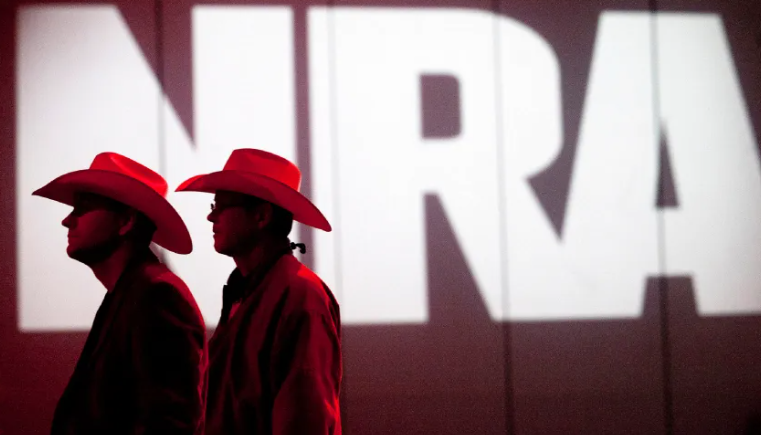
The National Rifle Association (NRA) settled a suit with the D.C. Attorney General’s Office on Wednesday, concluding a three-and-a-half-year case by promising to reform its troubled charity arm, avoiding a trial.
Prosecutors said the NRA Foundation misused more than $10 million in tax-deductible donations, illegally funneling the money into its parent organization for political activity. The case was set to go to trial April 29.
The settlement comes as the NRA recovers from a disastrous New York corruption trial, which saw the organization and its top executives levied with multimillion-dollar penalties for misuse of funds.
A judge found that top NRA executives spent millions of the group’s funds on luxury travel, clothes, dinners and other perks over decades. Former CEO Wayne LaPierre, who stepped down in the wake of the trial, was found liable for $5.4 million in damages, while former Chief Financial Officer Woody Phillips faced a $2 million judgment.
In the D.C. case, Attorney General Brian Schwalb said the NRA charity violated the “sacred public trust” of nonprofits, “allowing the NRA to use them as an unchecked piggy bank.”
“Caving to pressure from the NRA, the Foundation diverted millions of dollars to the NRA in grants and risky loans that were repaid only after OAG filed its lawsuit,” he continued in a statement. “Tax-exempt nonprofits are a form of public trust — abusing that trust as the NRA did violates both the public interest and District law.”
The NRA did not admit wrongdoing in the settlement agreement.
“This is further proof of the NRA’s commitment to good governance,” NRA President Charles Cotton said in a statement. “The NRA confronted this political attack — and emerges from this lawsuit strong, secure, and vindicated.”
The organization also fought back against Schwalb’s characterization of the settlement in a statement to The Hill, with NRA counsel William Brewer calling it “distorted and untruthful.”
“The DCAG ‘spins’ today’s settlement in avoidance of the facts: the DCAG long ago abandoned any claims of wrongdoing against the NRA,” Brewer wrote. “Even by DC standards, this is rank political gamesmanship — an after-the-fact justification for a failed lawsuit by these officials.”
Brewer continued, claiming that many of the claims Schwalb alleged against the NRA Foundation were unfounded, specifically noting that the settlement agreement includes no accusations or implications of wrongdoing by the organization.
“In the face of these facts, the DCAG settled its lawsuit — abandoning all claims against the NRA and NRA Foundation,” he wrote.
As part of the settlement agreement, the NRA Foundation agreed to annual nonprofit compliance training for its board members and officers, more consistent audits and the establishment of a conflict-of-interest policy.
It also asks the Foundation to form new policies “governing grantmaking, loans, shared services, and other activity with the NRA to ensure transparency, Foundation independence, and adherence to the Foundation’s nonprofit mission.”
The settlement does not include financial penalties, as the District’s nonprofit governance laws do not permit punitive damages. It will remain in effect until December 2026, Schwalb’s office said.
The NRA has struggled for years with declining membership and rising legal fees between the New York and D.C. suits.
The association lost about a half-million members from 2021-22, according to gun violence news nonprofit The Trace. The NRA raised just $213 million in 2022, about half of its 2016 total, according to the nonprofit Citizens for Responsibility and Ethics in Washington.
Following an 18-month investigation in the New York case, Attorney General Letitia James (D) said the NRA fostered “a culture of self-dealing, mismanagement and negligent oversight,” costing the group $64 million over three years. She sought to dissolve the whole organization in the suit, but a state judge pared back that demand last year.